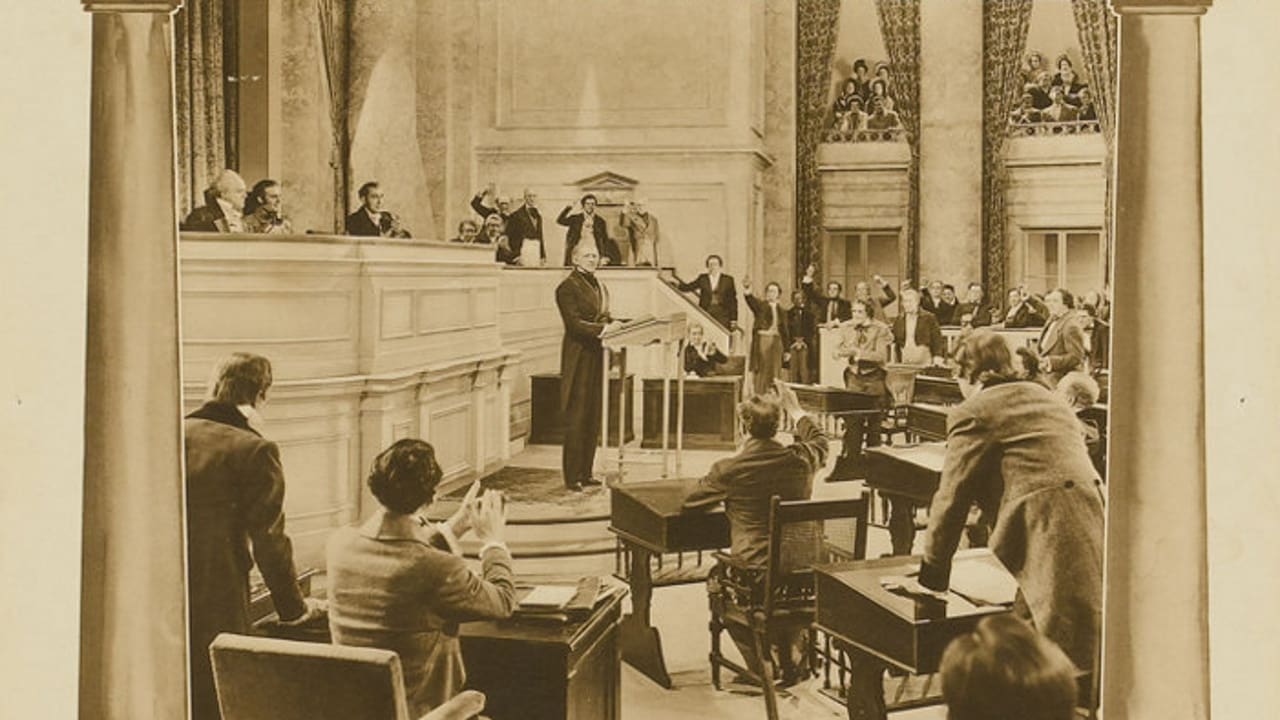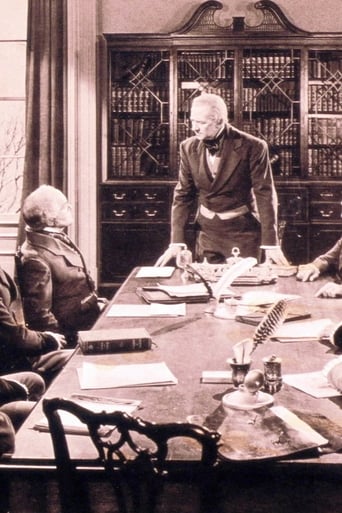

Great visuals, story delivers no surprises
... View MoreA waste of 90 minutes of my life
... View MoreIt's hard to see any effort in the film. There's no comedy to speak of, no real drama and, worst of all.
... View MoreMostly, the movie is committed to the value of a good time.
... View MoreONCE AGAIN WE are indebted to the folks over at TURNER CLASSIC MOVIES cable channel for bringing us yet another non-comedic short from the bygone days of a very different Hollywood. Rather than using series such as Laurel & Hardy, the Three Stooges or Leon Errol to warm up an audience by tickling the proverbial funny-bone, the Historical Short uses its one or two reels of allotted time to examine and shed light on any one of a plethora of terms and incidents from our many faceted past.WHEN ONE TAKES for consideration the subject of today's review, "the Monroe Doctrine", just what does this actually mean ? Surely everyone has run across this phrase many times, but what was or is it in actuality ? The film provided us with at least a fundamental and beginning explanation. WE ARE MAGICALLY transported via the medium of film to the White House during the Administration of James Monroe (1817-25). We find that certain European Powers have designs on now what were free and independent republics in the Americas. Spain was named as the number one offender in this matter. It was the decisive and bold move by use of Executive Order, as penned and published by President Monroe that gave notice and fair warning to such would be aggressors. By this measure, the United States recognized the newly independent Latin American Republics of Argentina, Peru, Colombia, Chile and Mexico-declaring that any aggression toward these nations or other newly formed independent states, would constitute an act of war against the USA.WHILE THESE NEWLY free, independent countries were protected, the caveats did not pertain to any then existing colonies. They could remain dominions of any European power (Spain to be exact), but expansion would not e tolerated. THE FILM THEN cites examples of various invocations of the Monroe Doctrine down through the years. The most famous application of the policy was probably the situation of the French invasion of Mexico during our Civil War, with Louis Napoleon (Napoleon III) bringing in the Hapsburg Prince, Maximilian, to be Emperor. (Skillfully dramatized in feature film, JUAREZ (Warner Brothers, 1939).ANOTHER NOTEWORTHY ITEM in the short, THE MONROE DOCTRINE, is the casting of actor Sydney Blackmer as President Theodore Roosevelt. It would seem that Mr. Blackmer was indeed doing a good business in the Teddy impersonations; which seemed to be a most common occurrence in film.THE REAL VALUE of these historical short dramas is not that they provide such a deep and scholarly view of our history; but rather that they give us what is at least a starting point. We can always follow up our movie going with a trip to the public library.
... View MoreSeen today the Monroe Doctrine is a short subject that casts that piece of foreign policy issued in an address to Congress. The new republics of Latin America shook off the increasingly weakening rule of Spain when the country was preoccupied with its own survival during the Napoleonic wars. The powers in Europe not wanting any more of this revolution business wanted to see Spanish rule destroyed, a really mind boggling proposition when you think about it.One power did not and that was Great Britain. They wanted to open up those new markets in South America to trade and as a sea power that was their living. They wanted to make it joint declaration.President James Monroe and his Secretary of State and successor John Quincy Adams said thanks but no thanks. Nevertheless in 1823 we could make a bold declaration, but it was the British fleet at that time that gave it some teeth.Charles Waldron plays Monroe and Grant Mitchell is Adams and we get to see Sidney Blackmer doing his patented Theodore Roosevelt imitation. I really was amused when the Venezuelan boundary dispute is cited and it only says "a foreign power" was trying to take over Venezuela in 1894. The unnamed power was Great Britain, but President Grover Cleveland decided to negotiate this one and cooler heads prevailed in Great Britain as well. No way was Hollywood going to put out anything bad about Great Britain in 1939.The Monroe Doctrine has been also used to justify intervention in these Latin American republics, the latest being in 1965 when Lyndon Johnson went into the Dominican Republic which was of course after this film was made.The film is certainly an attempt to give the rosiest possible interpretation of the use of this famous statement of foreign policy.
... View MoreMany years ago --- and unlike today --- Hollywood was dominated by people who loved mainstream American values and respected American history. In this era, Warner Bros. lavishly produced several short films such as "The Monroe Doctrine." These 20 minute movies had production quality equal to the best A-list movies."The Monroe Doctrine" is a very good one. Made back in 1939 in the new Technicolor, the way you would encounter these films were as add-on's to a feature, along with the cartoon, news and previews they rounded out the usual 2 hour program. It was strictly hit-n-miss about seeing these because the short subject program was rarely listed.If you want to see "The Monroe Doctrine" today, it will be easy. Just seek out the DVD for an A-list crime drama titled, "Invisible Stripes" starring George Raft, William Holden, Humphrey Bogart and Leo Gorcey. This short film is an add-on under Warner Night at the Movies.
... View MoreA Warner Brothers Short Subject.THE MONROE DOCTRINE asserts the rights of the Americas to be left alone from all European entanglements.This little film gives a good look at the reasons behind the Monroe Doctrine and how it was defined by succeeding American governments. It moves briskly and is well acted, especially by Grant Mitchell as John Quincy Adams and Sidney Blackmer as Teddy Roosevelt. Nanette Fabray & George Reeves very briefly portray young lovers caught up in history's flow.Often overlooked or neglected today, the one and two-reel short subjects were useful to the Studios as important training grounds for new or burgeoning talents, both in front & behind the camera. The dynamics for creating a successful short subject was completely different from that of a feature length film, something akin to writing a topnotch short story rather than a novel. Economical to produce in terms of both budget & schedule and capable of portraying a wide range of material, short subjects were the perfect complement to the Studios' feature films.
... View More